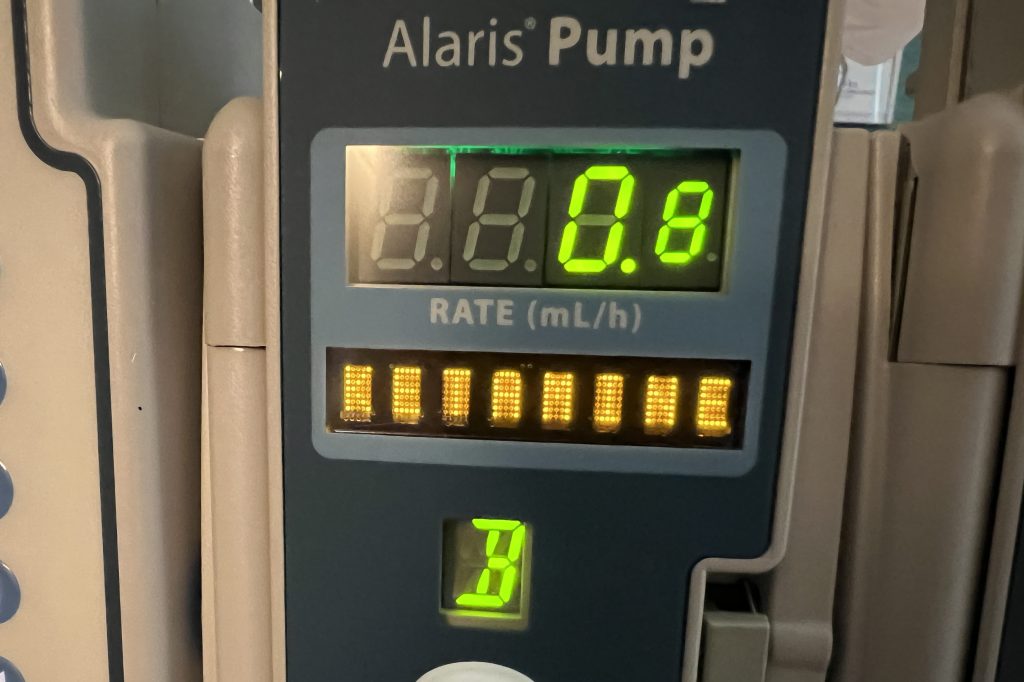The SEC has announced settled charges against New Jersey medical technologies company Becton Dickinson (BD), alleging that it failed to inform investors about the FDA approval status of its Alaris infusion pump, an electronic device that delivers IV fluids and medications at controlled doses.
The agency also stated that BD failed to inform investors about serious deficiencies in the device that presented the risk of a recall, and related remedial costs.
Without admitting or denying the SEC’s findings, BD agreed to pay a whopping $175m for the disclosure failures, and will retain an independent compliance specialist who will make recommendations on its disclosure controls and procedures.
During the period in question, the pump was a major source of revenue for BD, contributing to 10% of its total profits.
Compliance procrastination
According to the SEC’s order, in 2016 BD’s regulatory experts became aware that the company needed new 501(k) clearances for the Alaris pump because of changes to the device that had accrued over the years.
However, instead of seeking clearance for the backdated changes, BD only sought approval for certain prospective changes the company was seeking to implement for the device.
But BD discovered it could not provide the FDA essential information for either the new or old changes, and backed out of the FDA’s approval process in 2018. Because software additions would require 501(k) approval, BD’s withdrawal rendered it unable to make critical updates.
BD also did not inform its investors of a significant danger: without proper clearance, the FDA could prohibit sales of the Alaris pump due to accumulating risk factors. Instead, the company merely reported abstract or generic risks on its forms 10-K and 10-Q until 2020.
Failure to inform investors
The SEC stated that in FY2019 and FY2020, BD failed to inform investors that the FDA was increasingly likely to prohibit sales or require a recall of the device to fix battery flaws and bugs causing infusion delays.
This is in spite of the fact that BD committed to the FDA that it would use a recall to remediate the Alaris devices’ software. According to the order, it was also clear at this time that that the devices would require extensive on-site upgrades.
At the end of 2019, the company informed investors in its Form 8-K and 10-K filings that it was merely pausing production to upgrade the Alaris pumps, rather than to address serious faults.
The SEC stated that in those filings, BD overstated its FY2019 Q4 income by 82%, and its total FY2019 income by 5%, by failing to account for the cost of fixing the device’s myriad issues. According to the SEC, these accounting misstatements violated generally accepted accounting principles (GAAP.)
Despite grave warnings from the FDA, the company assumed, without clear basis, that the regulator would reverse course and continue to allow sales of the device without clearance.
That pattern of obfuscation lasted until February 2020, when BD informed investors it was pausing distribution of the Alaris device until the FDA granted 501(k) approval, prompting investor frustration and a 12% dip in the company’s stock price.
At the time one analyst wrote, “I just can’t even… I do not understand what happened here. 10 days ago we heard everything in pumps was OK and back on market and better than expected… I’m stunned and have a lot of angry people with pitchforks.”
Rule violations
- Sections 17(a)(2) and (a)(3) of the Securities Act, which prohibits untrue statements or omissions of fact;
- Section 13(a) of the Exchange Act and Rules 13a-1, 13a-11, and 13a-13, which require filings with SEC-registered entities;
- Exchange Act Rule 13a-15, which requires security issuers maintain disclosure controls and procedures, and internal control over financial reporting for firms required to submit annual reports.
- Rule 12b-20 of the Exchange Act, which require those filings to not be misleading; and
- Exchange Act Section 13(b)(2)(A) and (B), requiring reporting companies keep records of their transactions and distributions of assets, and that they are in accordance with GAAP.
















